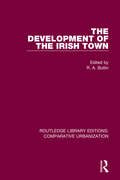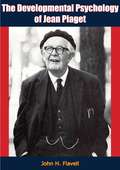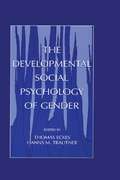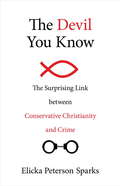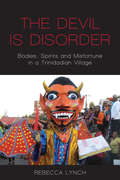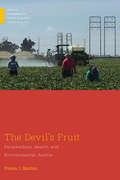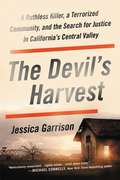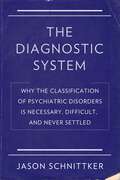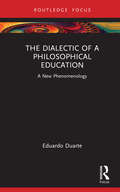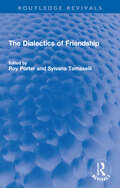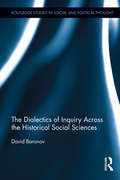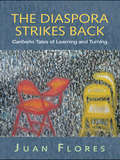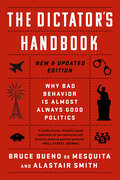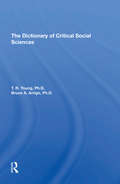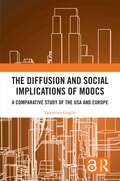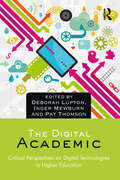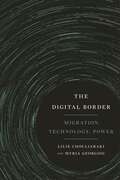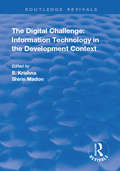- Table View
- List View
The Development of the Irish Town
by R. A. ButlinOriginally published in 1977, and now with an updated new Preface, this volume covers the question of Irish urban origins in the pre-Norman period, the character and development of the medieval towns, the changing forms and functions of towns and cities in the early modern period. It also examines the substantial changes in size and form effected by population growth and town planning in the eighteenth and nineteenth centuries. Ireland’s urban history is unique and particularly interesting for the way it contrasts with developments in the urban history of western Europe. Unlike most west European regions, it was not colonised by the Romans.
The Developmental Psychology of Jean Piaget
by John H. FlavellJEAN PIAGET—best known as developmental psychologist but also philosopher, logician, and educator—is one of the most remarkable figures in contemporary behavioral science. For more than forty years he and his associates have been constructing, in bits and pieces across an enormous bibliography, a broad and highly original theory of intellectual and perceptual development. Like Freudian theory, with which one is tempted to compare it in certain respects, Piaget’s theoretical system is a detailed and complicated one, not renderable in a few mathematical or verbal statements. Unlike Freudian theory, however, the system in its totality has not been widely assimilated by others. The major purpose of this book is to present an integrated overview of Piaget’s achievements, an overview sufficiently detailed to do justice to the complexity of his theory and the variety of his experimental contributions. This introductory chapter is intended to explain why a book on Piaget is desirable—or at least why it was written—and to summarize the plan or organization which the book will follow. In order to put these matters in context and to set the stage for a detailed description of Piaget’s system, it may be useful to examine briefly the man himself—the chronology of his life and achievements.
The Developmental Social Psychology of Gender
by Thomas Eckes Hanns M. TrautnerNumerous publications have addressed gender issues from a social or a developmental psychological perspective. This volume breaks new ground in advancing a genuine synthesis of theory and research from these two disciplines. Building on the premise that a full understanding of the multifaceted nature of gender can be achieved only through a wider focus on processes of development and social influence, the contributors examine theoretical approaches to gender development and socialization, gender categorization and interpersonal behavior, and group-level and cultural forces that affect gender socialization and behavior. The book will be of interest to students and professionals in social psychology, developmental psychology, gender studies, sociology, anthropology, and educational psychology.
The Devil Is a Gentleman
by J. C. HallmanA hundred years ago, the writer and philosopher William James wrote The Varieties of Religious Experience, a seminal work that has inspired generations of scholars and eccentrics alike. James’s book argues that the religious spirit in man is best understood through the study of its most extreme forms. Varieties was a watershed effort: a bestselling portrait of history’s pluralism and a defense of the spiritual quest, in all its guises, against the era’s increasingly secular sentiments. Today, with all the old tensions between skeptics and believers still in place, J. C. Hallman pays homage to James’s exploration of offbeat religious movements. But where James relied on the testimony and biographies of prophets and mystics, Hallman travels directly to some of America’s newest and most unusual religions, trekking from Druid circles in the mossy hills of northern California to the gleaming mother church of Scientology, from lurid satanic cellars in undisclosed locations to a professional-wrestling ministry in the fundamentalist heart of Texas. Along the way, he participates in a variety of rites and reports on a broad spectrum of beliefs. Eventually Hallman adopts James as his patron saint, spiritual adviser, and intellectual companion on the journey that will culminate in the creation of this book, a compelling combination of adventure and biography, spotted with hair-raising predicaments and rife with poignant portraits of unforgettable characters, including William James himself. The Devil Is a Gentlemanmaps the spiritual contours of modern American pluralism and examines the life and legacy of one of its most profound architects. From the Hardcover edition.
The Devil Never Sleeps: And Other Essays
by Andrei CodrescuThe Devil is alive and well and living in America, Andrei Codrescu tells us, and with good reason. Nowhere else in the world--not even in Codrescu's native Transylvania--is he taken quite as seriously. When Codrescu gently derided the fundamentalist Christian belief in Rapture ("a pre-apocalyptic event during which all true believers would be suctioned off to heaven in a single woosh") in one of his commentaries on National Public, NPR received forty thousand letters in a protest spearheaded by Ralph Reed of the Christian Coalition. Codrescu was warned to "stay away from eschatology."Thankfully for us, he hasn't. In The Devil Never Sleeps, one of America's shrewdest social critics sets out to uncover the Devil's most modern and insidiously banal incarnations. Once easily recognizable by his horns, tail, and propensity for plague, today's Devil has become embedded in every fiber of our culture. Discussing everything from rock 'n' roll to William Burroughs to New Orleans bars to the Demon of Prosperity, Codrescu mockingly unmasks Old Nick as the opportunistic technocrat he really is. Embracing cell phones, cable access, and cyberspace, the ubiquitous Devil of secular culture embodies the true evil facing us today--banality.In a world teeming with distractions, we are still more than capable of being bored to death. Tormented as much by insomnia and its ravages as the Devil (perhaps they are one and the same), we've become as twenty-four-hour society, swinging desperately between tedium and terror and sleeping fitfully, if at all. As Codrescu points out, the Devil never sleeps because we just won't let him.With his characteristic charm and playful exuberance, Andrei Codrescu has successfully teased the Devil out from the darkest recesses and comic excesses of the human experience. The Devil Never Sleeps is his most wonderfully perverse book yet.
The Devil You Know
by Elicka Peterson-SparksIn this trenchant examination of Christianity's dark side, a criminologist argues persuasively that high rates of violent crime in the United States can be correlated with Christian conservative attitudes, especially in regard to social mores and politics. Of particular concern is "Christian nationalism." Supporters of this movement argue that America was founded as a Christian nation and they work to install their fundamentalist brand of Christianity as the dominant factor in American political and social life. Far from being a fanatic outlier sect, this group is shown to have significant cultural influence, especially in the American South. Not coincidentally, the author suggests, the South also has the highest homicide rates. Noting the violent biblical passages often cited by religious conservatives, their sense of righteousness, their dogmatic mindset that tolerates no dissent, and their support for harshly punitive measures toward "sinners," Peterson Sparks shows that their worldview is the ideal seedbed for violence. Not only does this mindset make violent reactions in interpersonal conflicts more likely, the author says, but it exacerbates the problems of the criminal justice system by advocating policies that create high incarceration rates. The author also devotes particular attention to the victimization of women, children, and LGBT people, which follows from this rigid belief system. While not resorting to a blanket condemnation of Christianity or religion as a whole, Peterson Sparks issues a wake-up call regarding conservative Christianity's toxic mixture of fundamentalism, authoritarian politics, patriotism, and retributory justice.From the Hardcover edition.
The Devil in the White City: A Saga of Magic and Murder at the Fair that Changed America
by Erik Larson#1 NATIONAL BESTSELLER • NATIONAL BOOK AWARD FINALIST • From the #1 New York Times bestselling author of The Splendid and the Vile comes the true tale of the 1893 World's Fair in Chicago and the cunning serial killer who used the magic and majesty of the fair to lure his victims to their death. &“As absorbing a piece of popular history as one will ever hope to find.&” —San Francisco ChronicleCombining meticulous research with nail-biting storytelling, Erik Larson has crafted a narrative with all the wonder of newly discovered history and the thrills of the best fiction.Two men, each handsome and unusually adept at his chosen work, embodied an element of the great dynamic that characterized America&’s rush toward the twentieth century. The architect was Daniel Hudson Burnham, the fair&’s brilliant director of works and the builder of many of the country&’s most important structures, including the Flatiron Building in New York and Union Station in Washington, D.C. The murderer was Henry H. Holmes, a young doctor who, in a malign parody of the White City, built his &“World&’s Fair Hotel&” just west of the fairgrounds—a torture palace complete with dissection table, gas chamber, and 3,000-degree crematorium. Burnham overcame tremendous obstacles and tragedies as he organized the talents of Frederick Law Olmsted, Charles McKim, Louis Sullivan, and others to transform swampy Jackson Park into the White City, while Holmes used the attraction of the great fair and his own satanic charms to lure scores of young women to their deaths. What makes the story all the more chilling is that Holmes really lived, walking the grounds of that dream city by the lake.The Devil in the White City draws the reader into the enchantment of the Guilded Age, made all the more appealing by a supporting cast of real-life characters, including Buffalo Bill, Theodore Dreiser, Susan B. Anthony, Thomas Edison, Archduke Francis Ferdinand, and others. Erik Larson&’s gifts as a storyteller are magnificently displayed in this rich narrative of the master builder, the killer, and the great fair that obsessed them both.
The Devil is Disorder: Bodies, Spirits and Misfortune in a Trinidadian Village
by Rebecca LynchWhat role might the Devil have in health and illness? The Devil is Disorder explores constructions of the body, health, illness and wider misfortune in a Trinidadian village where evangelical Christianity is growing in popularity. Based on long-term ethnography and locating the village in historical and global context, the book takes a nuanced cosmological approach to situate evangelical Christian understandings as shaping and being shaped by their context and, in the process, shaping individuals themselves. As people move from local to global subjects, health here stretches beyond being a matter of individual bodies and is connected to worldwide flows and networks, spirit entities, and expansive moral orders.
The Devil's Fruit: Farmworkers, Health, and Environmental Justice (Medical Anthropology)
by Dvera I. SaxtonThe Devil's Fruit describes the facets of the strawberry industry as a harm industry, and explores author Dvera Saxton’s activist ethnographic work with farmworkers in response to health and environmental injustices. She argues that dealing with devilish—as in deadly, depressing, disabling, and toxic—problems requires intersecting ecosocial, emotional, ethnographic, and activist labors. Through her work as an activist medical anthropologist, she found the caring labors of engaged ethnography take on many forms that go in many different directions. Through chapters that examine farmworkers’ embodiment of toxic pesticides and social and workplace relationships, Saxton critically and reflexively describes and analyzes the ways that engaged and activist ethnographic methods, frameworks, and ethics aligned and conflicted, and in various ways helped support still ongoing struggles for farmworker health and environmental justice in California. These are problems shared by other agricultural communities in the U.S. and throughout the world.
The Devil's Harvest: A Ruthless Killer, a Terrorized Community, and the Search for Justice in California's Central Valley
by Jessica Garrison"Meticulously researched and tightly woven, The Devil's Harvest is an important story because it tells us that if [this] can happen in one place, then it can happen in any place. And that's damn scary."--Michael Connelly, New York Times bestselling author of The Closers, The Lincoln Lawyer, and The Night FireA page-turning, suspenseful story of a drug cartel hit man who got away with murder after murder in California's Central Valley for three decades, The Devil's Harvest reveals how the criminal justice system fails our most vulnerable immigrant communitiesOn the surface, fifty-eight-year-old Jose Martinez didn't seem evil or even that remarkable--just a regular neighbor, good with cars and devoted to his family. But in between taking his children to Disneyland and visiting his mom, Martinez was also one of the most skilled professional killers police had ever seen.He tracked one victim to one of the wealthiest corners of America, a horse ranch in Santa Barbara, and shot him dead in the morning sunlight, setting off a decades-long manhunt. He shot another man, a farmworker, right in front of his young wife as they drove to work in the fields. The widow would wait decades for justice. Those were murders for hire. Others he killed for vengeance.How did Martinez manage to evade law enforcement for so long with little more than a slap on the wrist? Because he understood a dark truth about the criminal justice system: if you kill the "right people"--people who are poor, who aren't white, and who don't have anyone to speak up for them--you can get away with it.Melding the pacing and suspense of a true crime thriller with the rigor of top-notch investigative journalism, The Devil's Harvest follows award-winning reporter Jessica Garrison's relentless search for the truth as she traces the life of this assassin, the cops who were always a few steps behind him, and the families of his many victims. Drawing upon decades of case files, interrogation transcripts, on-the-ground reporting, and Martinez's chilling handwritten journals, The Devil's Harvest uses a gripping and often shocking narrative to dig into one of the most important moral questions haunting our politically divided nation today: Why do some deaths--and some lives--matter more than others?span
The Devouring Fungus (Tales of the Computer Age)
by Karla JenningsA must for anyone who's ever considered using a RAM chip as fertilizer of booting up a computer with a steel toe. Karla Jennings' humorous history of the computer age shows that no part of our world today escapes the computer's influence. Includes witty illustrations Garry Trudeau, Rich Tennant, and others.
The Diagnostic System: Why the Classification of Psychiatric Disorders Is Necessary, Difficult, and Never Settled
by Jason SchnittkerMental illness is many things at once: It is a natural phenomenon that is also shaped by society and culture. It is biological but also behavioral and social. Mental illness is a problem of both the brain and the mind, and this ambiguity presents a challenge for those who seek to accurately classify psychiatric disorders. The leading resource we have for doing so is the American Psychiatric Association’s Diagnostic and Statistical Manual, but no edition of the manual has provided a decisive solution, and all have created controversy. In The Diagnostic System, the sociologist Jason Schnittker looks at the multiple actors involved in crafting the DSM and the many interests that the manual hopes to serve. Is the DSM the best tool for defining mental illness? Can we insure against a misleading approach?Schnittker shows that the classification of psychiatric disorders is best understood within the context of a system that involves diverse parties with differing interests. The public wants a better understanding of personal suffering. Mental-health professionals seek reliable and treatable diagnostic categories. Scientists want definitions that correspond as closely as possible to nature. And all parties seek definitive insight into what they regard as the right target. Yet even the best classification system cannot satisfy all of these interests simultaneously. Progress toward an ideal is difficult, and revisions to diagnostic criteria often serve the interests of one group at the expense of another. Schnittker urges us to become comfortable with the socially constructed nature of categorization and accept that a perfect taxonomy of mental-health disorders will remain elusive. Decision making based on evolving though fluid understandings is not a weakness but an adaptive strength of the mental-health profession, even if it is not a solid foundation for scientific discovery or a reassuring framework for patients.
The Dialectic of a Philosophical Education: A New Phenomenology (Routledge International Studies in the Philosophy of Education)
by Eduardo DuarteThis book provides an account, both theoretical and phenomenological, of the education offered by philosophy. Specifically, it examines the three distinct moments that make up the practice of philosophical study: reading, writing, and discussion. By considering each moment in turn, the author explores how philosophical learning creates opportunities for what Hannah Arendt described as “the gift of thinking poetically” and suggests that the dynamic and nonlinear relationship between these moments is what constitutes the dialectic of a philosophical education.Grounded in years of practice and offering scholarly commentary throughout, this shortform book will appeal to students and philosophers of education, as well as those with interests in teaching and learning more broadly.
The Dialectics of Friendship (Routledge Revivals)
by Roy Porter; Sylvana TomaselliFirst published in 1989, The Dialectics of Friendship explores the ideals and paradoxes of friendship against the backdrop of other relationships. The book begins with an introduction to the subject of friendship in its historical and cultural setting. Following chapters explore the ideal of friendship in classical Greece, and the richness and ambiguities of friendship in the Christian tradition. The social dimensions of friendship are discussed, including among children, between men, between women, and between humans and animals, and the wider historical and political aspects of friendship are examined. The Dialectics of Friendship will appeal to those with an interest in the sociology, psychology, and history of friendship, as well as psychoanalysis, literary criticism, and classics.
The Dialectics of Inquiry Across the Historical Social Sciences: Dialectics Of Inquiry Across The Historical Social Sciences (Routledge Studies in Social and Political Thought #85)
by David BaronovThis book turns conventional global-historical analysis on its head, demonstrating, first, that local events cannot be derived — logically or historically — from large-scale, global-historical structures and processes and, second, that it is these structures and processes that, in fact, emerge from our analysis of local events. This is made evident via an analysis of three disparate events: the New York City Draft Riots, AIDS in Mozambique, and a 2007 flood in central Uruguay. In each case, Baronov chronicles how expressions of human agency at the level of those caught up in each event give form and substance to various abstract global-historical concepts — such as slavery in the Americas, global capitalist production, and colonial/postcolonial Africa. Underlying this repositioning of the local and the ephemeral is an immanent, phenomenological analysis that illustrates how mere transient events are the progenitors of otherwise abstract, global-historical concepts. Traversing the intersections of human agency and structural determinism, Baronov deftly retains the nuance and serendipity of everyday life, while deploying this nuance and serendipity to further embellish our understanding of those enduring global-historical structures and processes that shape large-scale, long-term, historical accounts of social and cultural change across the historical social sciences.
The Dialectics of Urban and Architectural Boundaries in the Middle East and the Mediterranean (The Urban Book Series)
by Suzan Girginkaya Akdağ Mine Dinçer Meltem Vatan Ümran Topçu İrem Maro KırışThis edited volume informs readers about changing norms and meanings of borders and underlines recent scenarios that shape these borders. It focuses mainly on the Mediterranean and Middle East regions through the following questions: What are the social, cultural, philosophical, political, economic and aesthetic reasons for spatial segregation within contemporary territories and cities? In the world of globalization and networks, what are the new limitations of space? What are the alienating differences between interior and exterior, private and public, urban and rural, local and global, and real and virtual? Are spatial definitions and divisions more likely to be weakened (if not totally erased) by effects of globalization and mobility, similar to the dissolution of borders between countries? Or are local practices and measures likely to become more apparent with emerging trends such as sustainability and identity? Authored by international scholars, all chapters are arranged under four main parts: Urban and Rural, Global and Local, Physical and Sensual, Real and Virtual. Hence, different concepts and definitions of borders along with varying methods and tools for questioning their essence in architectural and urban spaces will be introduced. For example, in the rural and urban context, environments, settlements-housing, landscape, transformation, conservation and development; in the global and local context, styles, identity, universal design, sustainability, globalization and networks, mobility and migration; in the physical and sensual context, design studies and methodologies, environmental psychology, aesthetic reasoning, sense of place and well-being, and in the real and virtual context, realities, tools and communities are the main themes of the chapters.This book will be an essential source for professionals, scholars, and students of architecture and urban design with a view to understanding multidisciplinary perspectives in designing borders as well as the dialectical relationship between borders and space.
The Dialogics of Critique: M.M. Bakhtin and the Theory of Ideology
by Michael GardinerAs interest in the work of Bakhtin grows there is an increasing demand for a well organized, readable text which explains his main ideas and relates them to current social and cultural theory. This book is designed to supply this demand. Elegantly written with the needs of the student coming to Bakhtin for the first time in mind, it provides the essential guide to this important and neglected thinker.
The Diaoyu Islands: Facts and Legality (China Academic Library)
by Jiangyong LiuThis book conducts detailed research and analysis on the relevant literature and historical evidence regarding the 640-year history of ancient and modern China and other countries since the Ming Dynasty, and clarifies the chain of evidence concerning the Diaoyu Islands in terms of the facts and jurisprudence. Divided into seven chapters, the book includes over 220 original documents and maps. From the perspective of international law and historical fact, the author clarifies common misconceptions and refutes the opinions on the Diaoyu Islands issue put forward by Japanese officials and some scholars in recent years. By examining the historical documents and related maps of China, Europe and the United States, the ancient Ryukyu Kingdom, and Japan, the book presents convincing arguments that the Diaoyu Islands are historically Chinese territory, as one of the affiliated island groups of Taiwan. The book will be of considerable interest to scholars of Chinese foreign policy, Asian politics, security studies and international relations.
The Diaspora Strikes Back: Caribeño Tales of Learning and Turning (Cultural Spaces)
by Juan FloresIn The Diaspora Strikes Back the eminent ethnic and cultural studies scholar Juan Flores flips the process on its head: what happens to the home country when it is being constantly fed by emigrants returning from abroad? He looks at how 'Nuyoricans' (Puerto Rican New Yorkers) have transformed the home country, introducing hip hop and modern New York culture to the Caribbean island. While he focuses on New York and Mayaguez (in Puerto Rico), the model is broadly applicable. Indians introducing contemporary British culture to India; New York Dominicans bringing slices of New York culture back to the Dominican Republic; Mexicans bringing LA culture (from fast food to heavy metal) back to Guadalajara and Monterrey. This ongoing process is both massive and global, and Flores' novel account will command a significant audience across disciplines.
The Dictator's Handbook: Why Bad Behavior is Almost Always Good Politics
by Bruce Bueno de Mesquita Alastair SmithFor eighteen years, Bruce Bueno de Mesquita and Alastair Smith have been part of a team revolutionizing the study of politics by turning conventional wisdom on its head. They start from a single assertion: Leaders do whatever keeps them in power. They donOCOt care about the ?national interestOCO?or even their subjects?unless they have to. This clever and accessible book shows that the difference between tyrants and democrats is just a convenient fiction. Governments do not differ in kind but only in the number of essential supporters, or backs that need scratching. The size of this group determines almost everything about politics: what leaders can get away with, and the quality of life or misery under them. The picture the authors paint is not pretty. But it just may be the truth, which is a good starting point for anyone seeking to improve human governance.
The Dictionary Of Critical Social Sciences
by Bruce Arrigo T. R. YoungThis book is a teaching dictionary with the goal of de-mystifying current social science theory in a comprehensive, accessible format. It focuses on important terminology in progressive, radical, critical Marxist, feminist, left-liberal, postmodern, and semiotic contexts.
The Diffusion and Social Implications of MOOCs: A Comparative Study of the USA and Europe
by Valentina GoglioSince their first appearance in 2011, Massive Open Online Courses (MOOCs) have been at the centre of a great deal of media attention, owing to their disruptive potential in education. As university-level courses delivered free-of charge on digital platforms, they have also been the occasion of conflicting views regarding the quality of education and the future configuration of higher education systems. Based on new empirical research, including qualitative interviews as well as quantitative data from learners across several MOOCs, this book contributes to the debate by providing a comparative study of the diffusion and social implications of MOOCs in the USA, where everything started, and in Europe, where MOOCs were belatedly adopted by higher education institutions but now exhibit remarkable growth. Investigating the impact of MOOCs at macro level, on national higher education systems, as well as the social implications of MOOCs at micro level, with particular attention to the opportunities offered to learners to acquire knowledge and skills The Diffusion and Social Implications of MOOCs provides an encompassing comparative investigation of the specificity and social implications of the diffusion of MOOCs in two geographically and institutionally diverse contexts. As such, it will appeal to social scientists with interests in new technologies and higher education.
The Digital Academic: Critical Perspectives on Digital Technologies in Higher Education
by Deborah Lupton Pat Thomson Inger MewburnAcademic work, like many other professional occupations, has increasingly become digitised. This book brings together leading scholars who examine the impacts, possibilities, politics and drawbacks of working in the contemporary university, using digital technologies. Contributors take a critical perspective in identifying the implications of digitisation for the future of higher education, academic publishing protocols and platforms and academic employment conditions, the ways in which academics engage in their everyday work and as public scholars and relationships with students and other academics. The book includes accounts of using digital media and technologies as part of academic practice across teaching, research administration and scholarship endeavours, as well as theoretical perspectives. The contributors span the spectrum of early to established career academics and are based in education, research administration, sociology, digital humanities, media and communication.
The Digital Border: Migration, Technology, Power (Critical Cultural Communication)
by Lilie Chouliaraki Myria GeorgiouHow do digital technologies shape the experiences and meanings of migration?As the numbers of people fleeing war, poverty, and environmental disaster reach unprecedented levels worldwide, states also step up their mechanisms of border control. In this, they rely on digital technologies, big data, artificial intelligence, social media platforms, and institutional journalism to manage not only the flow of people at crossing-points, but also the flow of stories and images of human mobility that circulate among their publics. What is the role of digital technologies is shaping migration today? How do digital infrastructures, platforms, and institutions control the flow of people at the border? And how do they also control the public narratives of migration as a “crisis”? Finally, how do migrants themselves use these same platforms to speak back and make themselves heard in the face of hardship and hostility? Taking their case studies from the biggest migration event of the twenty-first century in the West, the 2015 European migration “crisis” and its aftermath up to 2020, Lilie Chouliaraki and Myria Georgiou offer a holistic account of the digital border as an expansive assemblage of technological infrastructures (from surveillance cameras to smartphones) and media imaginaries (stories, images, social media posts) to tell the story of migration as it unfolds in Europe’s outer islands as much as its most vibrant cities. This is a story of exclusion, marginalization, and violence, but also of care, conviviality, and solidarity. Through it, the border emerges neither as strictly digital nor as totally controlling. Rather, the authors argue, the digital border is both digital and pre-digital; datafied and embodied; automated and self-reflexive; undercut by competing emotions, desires, and judgments; and traversed by fluid and fragile social relationships—relationships that entail both the despair of inhumanity and the promise of a better future.
The Digital Challenge: Information Technology in the Development Context (Routledge Revivals Ser.)
by Shirin Madon S. KrishnaThis title was first published in 2003. Information and communication technologies (ICTs) are increasingly being recognized as vital to the economic growth and global inclusion and participation of developing countries. This book brings together both academics and practitioners to provide a comprehensive and insightful overview of ICT and development around the world. It examines the role of IT in providing new economic and industrial opportunities, in increasing access to global information and communication, in assisting small cultural and ethnic groups to overcome disadvantages of physical distance and in catalysing initiatives towards democratic decentralization and empowerment of citizens. It also critically appraises major problems such as inappropriate focus and resource allocation, and of missed opportunities. By combining comparative case studies from Africa, South and East Asia, South America and Eastern Europe with theoretical analysis, this volume synthesizes a range of issues related to the evident tensions that exist for developing countries as they try to balance global and local priorities through the adoption and use of ICTs.
